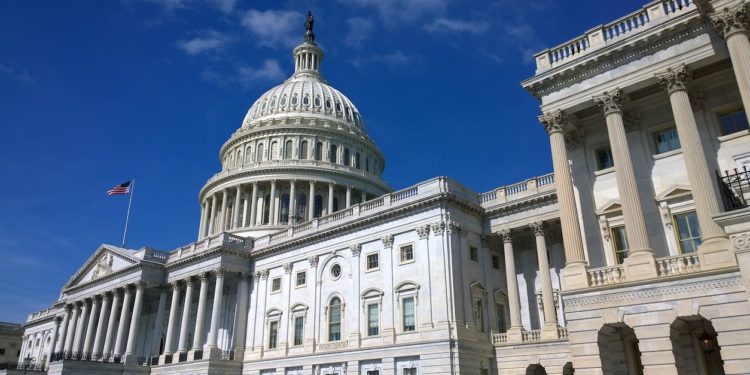Rep. Maxine Waters is ushering in a draft bill to regulate stablecoins ahead of a House hearing this week.
The California Democrat’s draft bill would “provide requirements for payment stablecoin issuers, research on a digital dollar, and for other purposes,” according to a committee memo for Thursday’s hearing.
The bill would also require payment stablecoin issuers to be approved by the Federal Reserve or possibly a state regulator.
“Specifically, payment stablecoins may be issued by either a qualified bank subsidiary or a nonbank financial company,” according to the memo.
The former House Financial Services Committee chairwoman’s bill would also restrict companies such as Facebook or Wal-Mart from issuing their own stablecoins, which they have tried to do in the past.
This comes after House Financial Services Chair Patrick T. McHenry worked with Waters on a bill late last year with the Treasury Department and Federal Reserve, but didn’t “quite get there.”
McHenry has his own draft bill, which has some similarities to Waters’ bill such as requiring approval by federal or state regulators, but also “provides clarity for insured depository institutions seeking to provide digital asset-related services,” according to the memo.
What else is happening at the hearing?
The House Financial Services’ subcommittee on digital assets, financial technology and inclusion will meet at 9 a.m ET on Thursday in a hearing titled “Putting the ‘Stable’ in ‘Stablecoins:’ How Legislation Will Help Stablecoins Achieve Their Promise.”
Lawmakers will hear from Matt Homer, former executive deputy superintendent at the New York State Department of Financial Services.
Homer will speak about the NY regulator’s work and what lawmakers should focus on writing legislation to regulate stablecoins, according to prepared testimony.
Other legal and crypto experts plan to talk about why a stablecoin bill is needed during the hearing, according to testimonies.
“We can – and should – proactively mitigate these risks by establishing a regulatory framework now, before these risks grow larger and scale makes change more difficult. Importantly, some form of appropriately calibrated prudential regulation can minimize the risk of needing to provide government support to stablecoin issuers during a period of stress,” said David Portilla, partner at Davis Polk & Wardwell LLP, in his prepared testimony.
Credit: Source link












































































































































